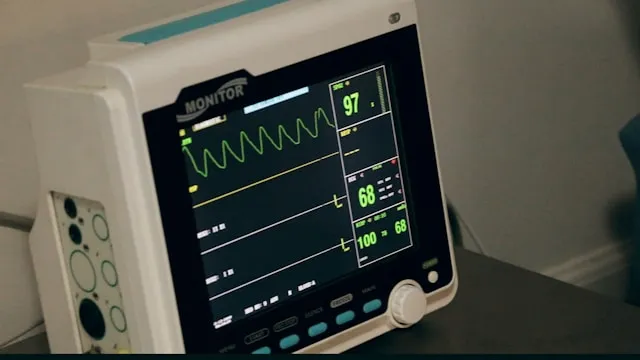Have you ever heard of the stress echocardiogram test? As the name suggests, it is a procedure to know the functioning of your heart. The stress echo test must be done periodically after a certain age. If you have chest pain or irregular heartbeat, your doctor will get an echo stress test. But have you ever wondered when and how the test is done, how you should prepare for it, how long it takes, what the risks are, etc.? Read on to get your answers.

What is a Stress Echocardiogram?
A stress echocardiogram, often known as an echo stress test or echocardiography stress test, is a procedure used to assess the health of your heart and blood vessels. It measures your blood pressure and cardiac rhythm during stress echocardiography. While exercising, when your heart rate peaks, your doctor will capture ultrasound images of your heart to check if your heart muscles are receiving enough blood and oxygen.Who should have a stress Echocardiogram?
If you have chest pain or an irregular heartbeat, your doctor may prescribe a stress echocardiogram test to analyze the valves and chambers of your heart or to assess your heart's ability to pump. They want to see if you have symptoms of any heart disease, such as chest pain, shortness of breath, coronary artery disease, or myocardial infarction (or heart attack). If you're in cardiac rehabilitation, the stress echo test will also evaluate how much exercise you may safely endure.When is an echo stress test performed?
This echo stress test is performed to determine whether your chest pain or discomfort is due to coronary heart disease. It could also be caused by other heart issues. The test is normally advised if you cannot perform a treadmill exercise test or if your previous exercise test was inconclusive. The test can also inform your doctor about the effectiveness of treatments, including bypass grafting, angioplasty, and anti-anginal or antiarrhythmic drugs.How do I prepare for an echo stress test?
This test is performed in an echocardiography laboratory. Sometimes it can also be performed at your doctor's office or another medical setting. It would help if you did the following before taking the test:- It would help if you did not eat or drink anything for three to four hours before the echo stress test.
- On the echo stress test day, avoid smoking because nicotine can interfere with your heart rate.
- Don't drink any caffeine-containing foods or beverages without consulting your doctor.
- If you take drugs, check with your doctor to see if they should be taken on the day of the test. Certain heart drugs, such as beta-blockers, and nitrates like isosorbide-dinitrate, isosorbide-mononitrate, and nitroglycerin, should not be taken before the test. Inform your doctor if you are also on diabetes medication.
- Wear loose-fitting and comfy clothing.
- Wear shoes that are good for walking or running since you will be moving around for the stress echo test.
How is it done?
A cardiologist may perform the following steps to perform the Echo stress test;- First, resting echocardiography will be performed.
- A small transducer device is pressed on your chest as you lie on your left side with your left arm out, and ultrasound waves are measured.
- A stress test is done where most people will walk on a treadmill or pedal an exercise bicycle. You will be urged to walk or pedal faster for 5 to 15 minutes.
- Your blood pressure and cardiac rhythm (ECG) will be checked throughout the process.
- Finally, you will be asked to stop exercising, and a stress echocardiogram will be recorded. As you walk around slowly, your doctor will measure your heart rate, ECG, and blood pressure until it returns to normal.
Techniques Used for Stress Echocardiogram Test -

1. Resting echocardiography -
The Echo test is performed to give an accurate picture of your heart's performance while resting. Your doctor will begin by applying ten adhesive patches known as electrodes on your chest. Your heart's electrical activity, including your heart rate and rhythm, may be analyzed using an electrocardiograph (ECG) by connecting electrodes to the device. As you lay on your left side, your doctor will do a resting echocardiogram or ultrasound of your heart. They will use a transducer after applying a specific gel to your skin. This device generates photos of your heart's movement and interior architecture by emitting sound waves.2. Stress Test -
Following the resting echocardiography, your doctor will have you exercise on a treadmill or stationary bicycle. In most circumstances, depending on your degree of fitness and age, you will need to walk or pedal for 5 to 15 minutes. Your doctor will request that you stop:- When your heart rate is within the normal range
- When you are too exhausted to keep going
- If you are experiencing chest pain or a change in your blood pressure
3. Stress echocardiography -
When your doctor tells you to stop exercising, another ultrasound will be performed. The stress echocardiogram is to capture more photographs of your heart at work while stressed. You will then have time to relax. You can slowly stroll about to allow your heart rate to return to normal. Your ECG, heart rate, and blood pressure are all monitored by your doctor until they return to normal.How long does a Stress Echocardiogram Test take?
The stress echo test usually takes approximately 30 - 45 minutes.What are the risks?
The echocardiogram stress test is usually considered to be safe. Some risks may be involved since it strains the heart. Rare complications include:- Creating an irregular cardiac rhythm
- Heart attack
- Dizziness
How will I get my results?
Before you leave the testing room, your technician conducting the test may be able to provide you with preliminary test findings. Your doctor will receive the test report in around 3-5 business days. These test findings can be addressed at a later appointment.What to Expect After the Echo Stress Test -
After completing the test, you will be asked to stay on the test table until your blood pressure and heart rate return to normal.- After your blood pressure has stabilized, the blood pressure monitoring cuff will be removed from your arm, the ECG electrodes will be removed from your chest, and the intravenous cannula will be removed from your arm vein.
- You will then be accompanied to a waiting room or reception and requested to wait for roughly 30 minutes. If you feel great, you can go home. It is advised not to drive for a few hours after the test, especially if atropine was administered. You can resume any medicines you had stopped taking 48 hours before the test. You are free to continue your normal activities.
Conclusion -
In this blog, we have tried to provide you with a complete before, during, and after guide for a stress echocardiogram test. The echo stress test is nothing to be scared of. With the right diagnosis, your treatment can be started or modified for your benefit. Hope it helps!
Reviewed by







